Including custom fields on your donation form ensures you gather exactly the information you need, and better information means better engagement with your donors. You can take custom fields further by enabling conditional logic, so you only show certain fields to the people who need to see them.
In this post, I’ll explain how conditional fields work and provide a few fundraising tips and tricks to show how you can use them on your donation forms.
What are Conditional Fields, and Why Do They Matter?
Conditional fields are custom fields with conditional logic enabled. Conditional logic means that the field will only appear if certain criteria on the form are met.
For example, you can have a conditional field that only displays if a donor meets a particular donation threshold or answers “Yes” to another question.
Conditional logic keeps your donation forms streamlined and uncluttered, whereas a form with too many fields can distract and overwhelm users.
Simpler forms not only look nicer but also load more quickly, which makes donating faster for your constituents.
Here’s an example of a form that could benefit from conditional fields:
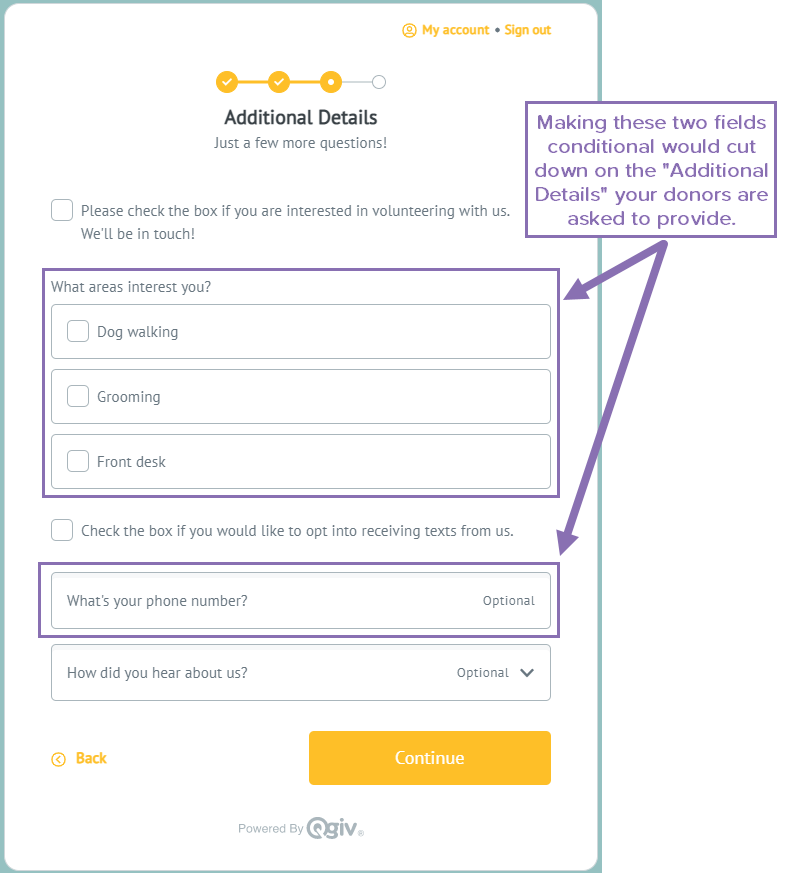
Two of the fields on this “Additional Details” page really aren’t relevant to donors who don’t check the boxes for “volunteer interest” or “text message opt-in.” With conditional logic, we can keep those fields hidden until a donor needs them!
Using conditional fields also ensures that you gather the right information for the right donors.
Check out some examples below, and for more donation form best practices, take a look at these 8 ways to make your donation form stand out!
How to Use Conditional Fields on Your Donation Form
With Qgiv’s redesigned donation forms, it’s really easy to apply conditional logic to your custom fields. In custom field display settings, you just have to define when you want the field to appear.
The conditional fields won’t appear if the criteria aren’t met, so constituents won’t see fields that aren’t relevant to them.
Here’s our example from earlier with conditional logic enabled:
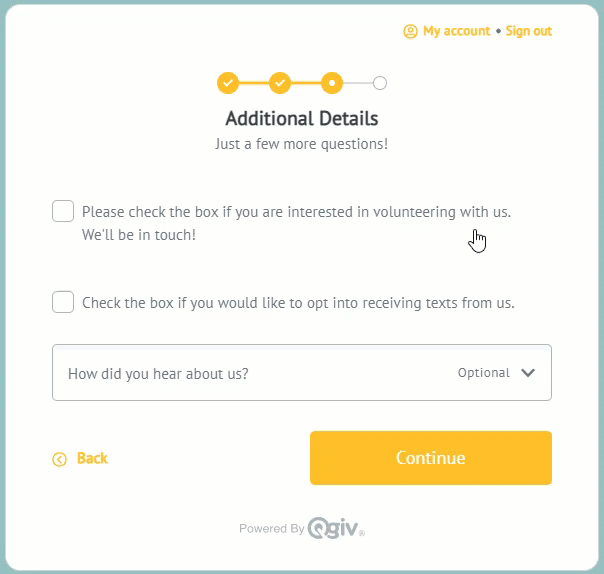
Take a look at some more ways you can use conditional fields to gather better information:
Connect conditional fields to specific donation amounts
Brookhaven Animal Rescue League included an option to sponsor an engraved brick. Donors who selected the $50 donation amount were prompted to include what they wanted engraved. They further customized the field by specifying the number of lines and characters donors could include.


Use custom fields to gather additional participant information
B.I.G. Love Cancer Care Services used conditional fields for an event registration. Registrants who selected a team package were promoted to fill in team member names and shirt sizes.

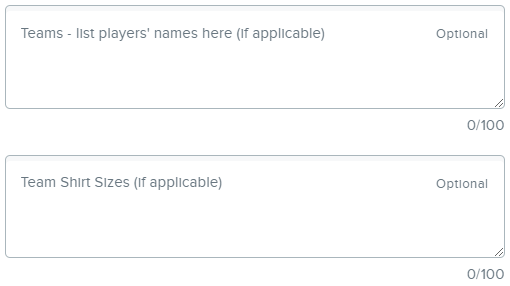
Use conditional logic to verify eligibility
The Girl Scouts of Orange County have a special membership level for younger donors. To verify that “Go-Getter” donors meet the criteria, the conditional field prompts them to input their dates of birth.
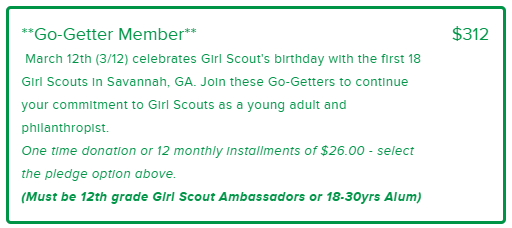

Find out how your constituents want to help
Hemophilia Association of the Capital Area asks donors if they want to volunteer, and if they say “yes,” another field lets them choose what aspect of volunteering appeals to them.
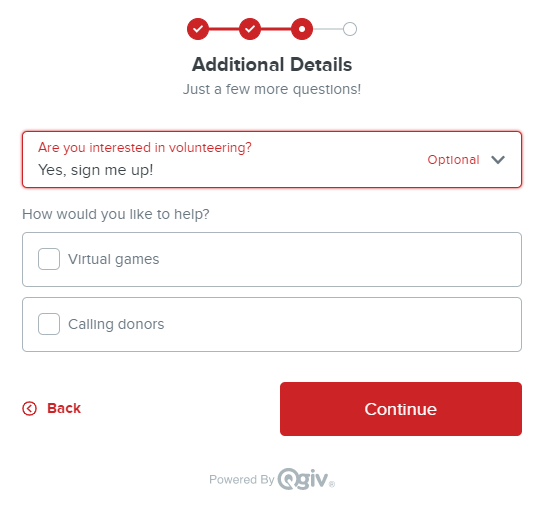
If you use Qgiv’s service integrations, you can also map data from custom fields to your CRM!
Takeaways
Custom fields are a great way to personalize your donation forms and ensure you gather exactly the information you need from your constituents. Adding conditional logic to custom fields keeps your forms streamlined by displaying fields only to the people who need to see them. That way, your forms remain beautiful, load faster, and don’t overwhelm your donors.
Want to learn more?
Check out our interactive donation form templates to see what else you can do with Qgiv’s redesigned donation forms.
If you’re ready to see how it all works, schedule a demo today!


